Deep within the cloud-covered mountains of Central and East Africa, a remarkable species calls the misty forests home. Mountain gorillas, among the world’s most endangered primates, continue to captivate researchers and conservationists with their intelligence, social complexity, and surprisingly gentle nature. These magnificent creatures, immortalized by Dian Fossey’s groundbreaking research, hold secrets that challenge our understanding of what it means to be human.
Living on the Edge of Extinction
Mountain gorillas exist in a precarious balance between survival and extinction. With fewer than 1,100 individuals remaining in the wild, they represent one of conservation’s greatest success stories and ongoing challenges. These remarkable apes inhabit only two isolated populations: the Virunga Mountains spanning Rwanda, Uganda, and the Democratic Republic of Congo, and Uganda’s Bwindi Impenetrable Forest.
What makes their survival even more extraordinary is their restricted habitat. Mountain gorillas live exclusively at elevations between 8,000 and 13,000 feet, where temperatures can drop to freezing and thick mist shrouds the forest for much of the day. This high-altitude environment, while providing protection from human encroachment, also limits their range and makes them uniquely vulnerable to climate change.
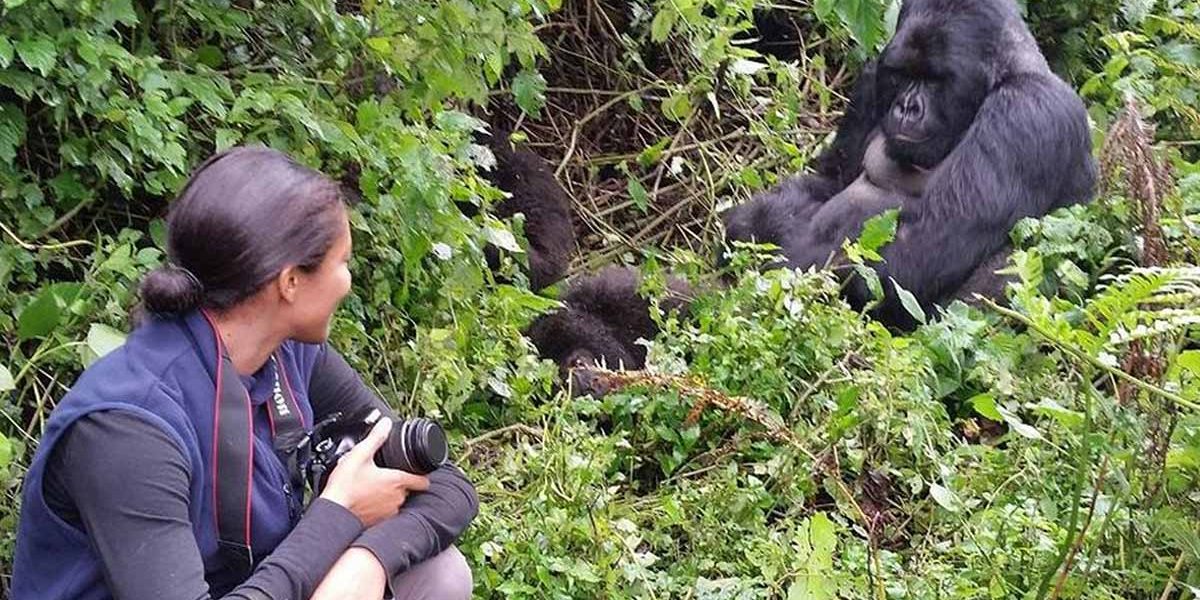
Masters of Mountain Architecture
Unlike their lowland cousins, mountain gorillas have evolved remarkable adaptations for their challenging environment. Their thick, dark fur provides insulation against the cold mountain air, while their powerful limbs help them navigate steep, rocky terrain with surprising grace. Adult males, known as silverbacks, can weigh up to 440 pounds and stand over six feet tall when upright, yet they move through the forest with remarkable stealth and precision.
Perhaps most fascinating is their daily ritual of nest-building. Every evening, mountain gorillas construct elaborate sleeping nests from bent branches and vegetation. Mothers share their nests with infants under three years old, while juveniles and adults each build their own. These temporary shelters demonstrate not only their intelligence but also their intimate knowledge of their forest environment.
The Language of the Forest
Mountain gorillas possess a rich communication system that rivals many human cultures in complexity. Researchers have identified over 25 distinct vocalizations, each serving specific purposes within their social groups. The soft rumbling sound known as “belch vocalizing” serves as a contentment call, helping maintain group cohesion as they forage. Sharp barks indicate alarm, while screams and roars are reserved for serious conflicts or threats.
Their body language is equally sophisticated. A direct stare is considered a threat, while avoiding eye contact signals submission. Chest beating, often misunderstood as aggression, actually serves multiple purposes including long-distance communication, establishing location, and expressing excitement or frustration. Young gorillas have been observed chest-beating during play, suggesting this behavior may also serve as practice for adult social interactions.
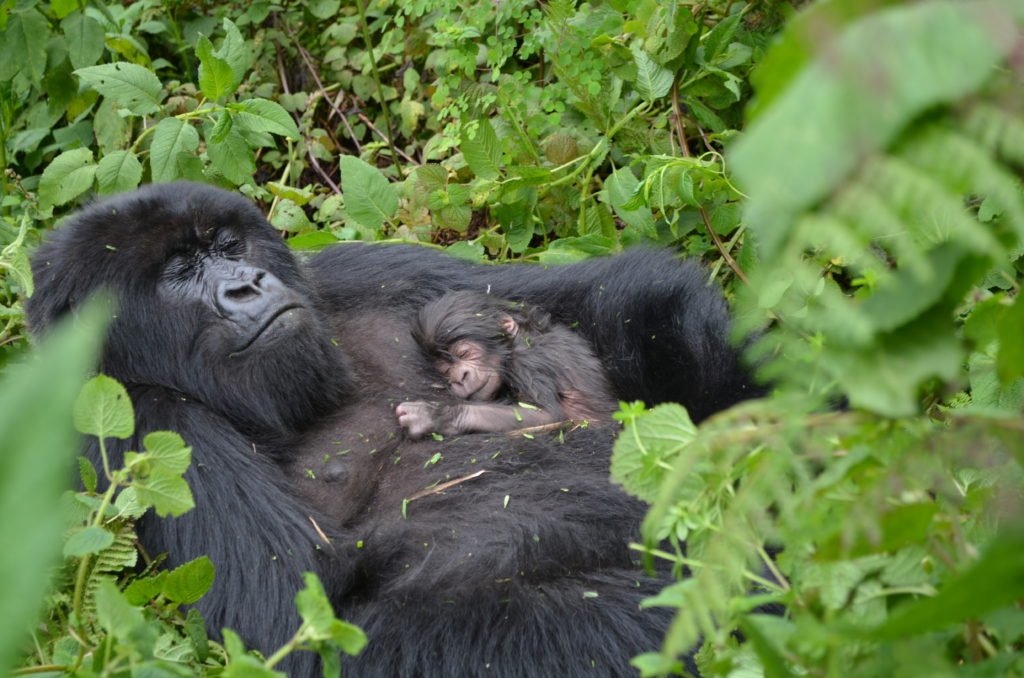
Gentle Giants with Complex Emotions
Despite their imposing size and strength, mountain gorillas are fundamentally peaceful creatures. They’re primarily vegetarian, spending up to eight hours daily foraging for leaves, stems, bark, and fruit. Their diet consists of over 140 plant species, and they play a crucial role as seed dispersers in their mountain ecosystem.
What truly sets mountain gorillas apart is their capacity for complex emotions and social bonds. They display empathy, consoling distressed group members with gentle touches and embraces. Mothers show profound grief when losing infants, carrying deceased babies for days. Play behavior extends well into adulthood, with even silverbacks engaging in gentle wrestling matches and games with younger group members.
Intelligence Beyond Measure
Mountain gorillas consistently demonstrate problem-solving abilities that challenge traditional notions of animal intelligence. They’ve been observed using tools in the wild, such as using sticks to test water depth before crossing streams. In research settings, gorillas have learned sign language, with some individuals mastering vocabularies of over 1,000 signs.
Their memory capabilities are equally impressive. Mountain gorillas can remember the locations of seasonal food sources across their territory and navigate complex routes through dense forest. They recognize individual humans even after years of separation and can distinguish between researchers, tourists, and potential threats based on subtle behavioral cues.

Guardians of the Forest
Mountain gorillas serve as umbrella species for their entire ecosystem. Protecting their habitat preserves countless other species, from golden monkeys to forest elephants. Their presence indicates a healthy forest ecosystem, as they require large territories with diverse plant communities to survive.
The economic impact of mountain gorilla tourism cannot be overstated. Mountain gorilla trekking in Uganda & Rwanda generates millions of dollars annually for local communities, providing powerful incentives for conservation. This unique form of eco-tourism has transformed former poachers into dedicated park rangers and given local communities a vested interest in protecting these magnificent creatures.
Threats and Triumphs
Mountain gorillas face numerous challenges, from habitat loss and human encroachment to disease transmission and climate change. Political instability in the region has historically made conservation efforts extremely difficult. However, their story is also one of remarkable resilience and conservation success.
Thanks to intensive protection efforts, mountain gorilla populations have slowly increased over the past two decades. Advanced veterinary care, anti-poaching patrols, and community-based conservation programs have all contributed to their recovery. Each birth is celebrated as a victory, each successful breeding season offers hope for the future.
A Window into Our Past
Sharing approximately 98% of their DNA with humans, mountain gorillas offer unique insights into our evolutionary history. Their social structures, emotional complexity, and problem-solving abilities provide glimpses into what our common ancestors might have been like millions of years ago.
Studying mountain gorillas has revolutionized our understanding of primate behavior and challenged assumptions about the uniqueness of human traits. Their capacity for grief, joy, playfulness, and complex social relationships reminds us that we share this planet with creatures of remarkable intelligence and emotional depth.
The Future of the Mist
As climate change alters their mountain habitat and human populations continue to grow, mountain gorillas face an uncertain future. However, their story demonstrates that with dedicated conservation efforts, international cooperation, and community involvement, even the most endangered species can be pulled back from the brink of extinction.
These gentle giants of the mist continue to inspire and educate us about the natural world. Every encounter with a mountain gorilla family offers a profound reminder of our connection to the animal kingdom and our responsibility as stewards of the Earth. In protecting mountain gorillas, we protect not just a species, but an entire ecosystem and a piece of our shared evolutionary heritage.
Their survival depends on our continued commitment to conservation, but their legacy extends far beyond their mountain homes. Mountain gorillas teach us about family, resilience, and the delicate balance between humanity and nature. In their gentle eyes, we see reflections of ourselves and glimpses of what we might become if we choose to coexist rather than dominate the natural world.
BOOK GORILLA SAFARI ONLINE
 Mumwe Safaris is a trusted Ugandan tour operator specializing in unforgettable gorilla safaris in Bwindi Impenetrable Forest, Mgahinga Gorilla National Park and Rwanda’s Volcanoes park. With expert guides and well-equipped 4×4 vehicles, Mumwe Safaris offers personalized trekking adventures that bring you face-to-face with Uganda’s rare mountain gorillas in their natural habitat. Our team handles all permit bookings and logistics, ensuring a seamless, safe, and immersive wildlife experience across Uganda’s most iconic gorilla destinations.
Mumwe Safaris is a trusted Ugandan tour operator specializing in unforgettable gorilla safaris in Bwindi Impenetrable Forest, Mgahinga Gorilla National Park and Rwanda’s Volcanoes park. With expert guides and well-equipped 4×4 vehicles, Mumwe Safaris offers personalized trekking adventures that bring you face-to-face with Uganda’s rare mountain gorillas in their natural habitat. Our team handles all permit bookings and logistics, ensuring a seamless, safe, and immersive wildlife experience across Uganda’s most iconic gorilla destinations.
To book a gorilla safari in Uganda this season- simply contact us now by sending an email to info@ugandasafaribookings.com or call us now on +256-700135510 to speak with our reservations team.
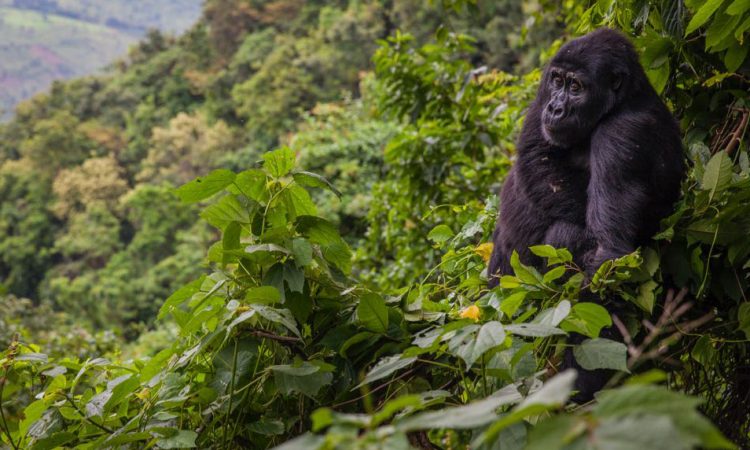

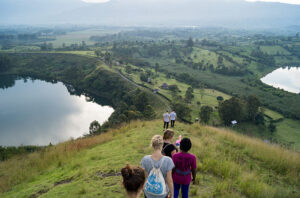

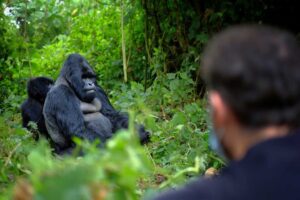
More Articles
Beyond Gorillas: Hidden Gem Safaris in Uganda Tourists Miss
Big 5 & Beyond: Discovering the Best Uganda Safaris for 2026
Bwindi Gorilla Trekking: The Crown Jewel of Uganda Safaris